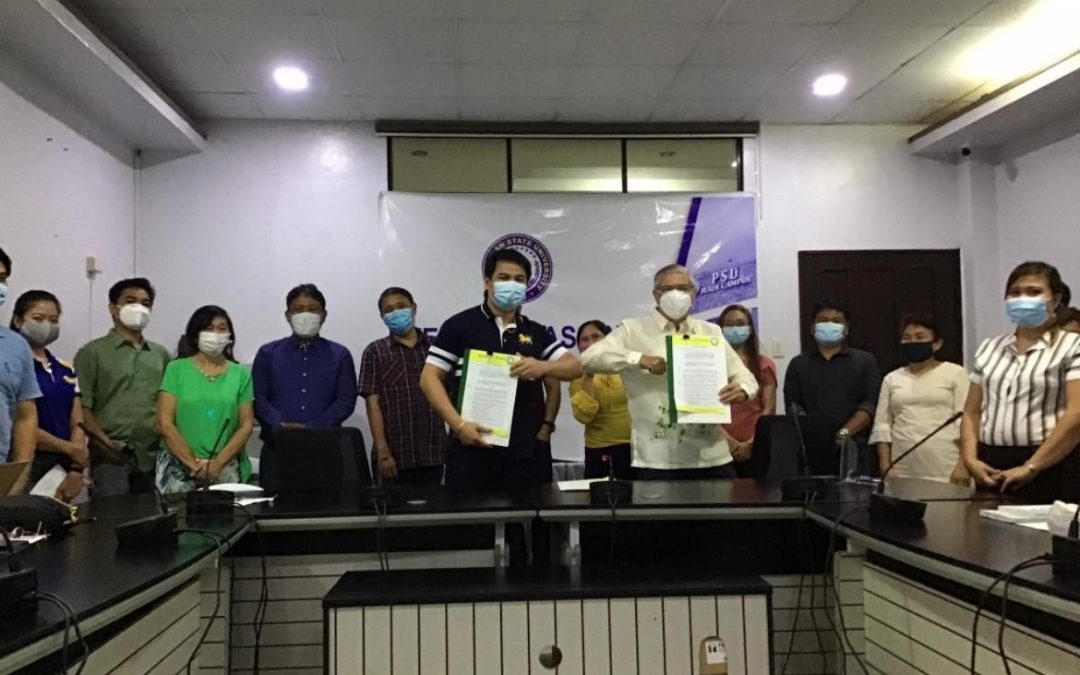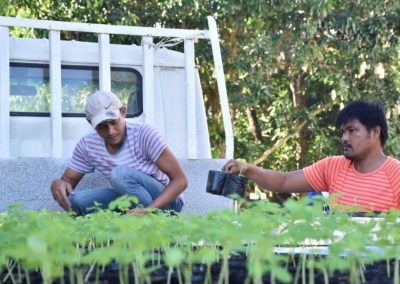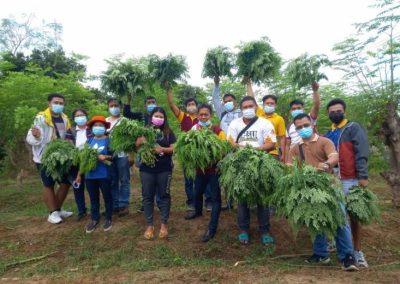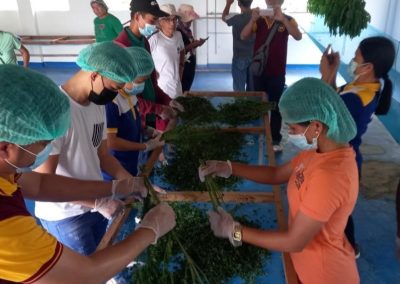In an effort to address the challenges faced by farmers and other stakeholders during the COVID-19 pandemic, the Organic Moringa or malunggay (Moringa oleifera) production in the Philippines has been successfully revitalized through a collaborative effort led by the Moringaling Philippines Foundation Inc. (MPFI) and supported by the State Universities and Colleges (SUCs), the Department of Agriculture (DA), and the organic farmers.
Recognizing the need for alternative sources of income and the increasing demand for organic products, the National Program for Organic Moringa Production was launched. Under the leadership of Secretary William Dar and supported by the Bayanihan 2 We Recover as One and Plant, Plant, Plant Program, the massive seedling production, and distribution of Organic Moringa began in 2021.
Recognized for its exceptional antioxidant properties, Organic Moringa has gained a reputation as a “Superfood,” a “Miracle Plant,” and even “Green Gold” among nutraceutical and pharmaceutical companies worldwide. However, the current supply of Organic Moringa for both local and export markets is insufficient, necessitating the implementation of this national program.
In Pangasinan, MPFI and Pangasinan State University (PSU) partnered on August 17, 2020, to promote and produce Organic Moringa. They established a genebank/germplasm at PSU Sta. Maria Campus for seedling production and set up plantations across Pangasinan with the help of local farmers engaged in organic farming. PSU provided farmers with supplies, seedlings, and technical assistance, planting two varieties: PKM1 for seed oil and native Moringa for leaf production.
Successful Moringa production sites were established in Malasiqui, Natividad, San Fabian, Dasol, San Manuel, and PSU Sta. Maria. To ensure the project’s sustainability, the farms of eight farmers’ groups have been designated as seedbanks for future propagation of PKM1 and native ecotypes.
To ensure the quality and productivity of Moringa plants, seven Moringa oleifera accessions from different locations were germinated and transplanted to evaluate leaf production.
Promising accessions will be propagated once they produce seeds. The next phase involves analyzing the nutrient content of the evaluated Moringa lines or ecotypes when the leaves reach maturity.
Collaboratively, MPFI, PSU, and the Department of Agriculture Regional Field Office 1 (DA RFO1) have conducted several training sessions on organic Moringa farm management, seedling care, financial management, marketing, and value-adding. As the project progresses, farmer-beneficiaries will be provided with processing equipment and facilities to aid in pre-processing raw materials and producing Moringa products such as powder and oil. These products will be marketed locally through Kadiwa outlets, MPFI members, and other local markets.
Moreover, PSU has implemented a comprehensive sustainability plan to ensure the success and profitability of organic Moringa farms in the region. These measures include constructing perimeter fences in the production sites in PSU Sta. Maria and Infanta Campus to ensure biosafety, creating nursery areas for a consistent supply of seedling production, and building storage and laboratory facilities. A germplasm center will monitor plantations for health and productivity.
In line with the principles of organic farming, the Moringa farms will adopt organic fertilization methods and protocols through cost/benefit analysis and soil testing. Seedlings will be distributed to other farmers, schools, and government agencies to fulfill project requirements, and best practices will be documented. Pilot farms will become regular farms, with owners sharing in operational costs.
To facilitate market connections and maximize the commercial potential of organic Moringa, PSU, in collaboration with MPFI and DA RFO1, will actively monitor the project and connect farmers to potential buyers. Training sessions on farm management, financials, and marketing will also be conducted to equip farmers with the necessary skills for success.
For the next phase of the project, processing equipment and facilities will be provided, and proposals will be submitted to DA-BAR and DAR for the acquisition of processing equipment and facilities. Through the funding of DBM, PSU was also able to provide two air-dying facilities to Dasol P4MP and Hacienda Quinitio, which will help in the pre-processing of raw materials to Moringa processing.
With the implementation of this comprehensive sustainability plan, PSU is leading the way in promoting Organic Moringa farming practices and driving the growth of sustainable agriculture in Pangasinan. The university’s collaborative efforts, along with the support of MPFI and DA RFO1, are set to advance the Moringa industry and contribute to the overall development of the region’s agricultural sector.



